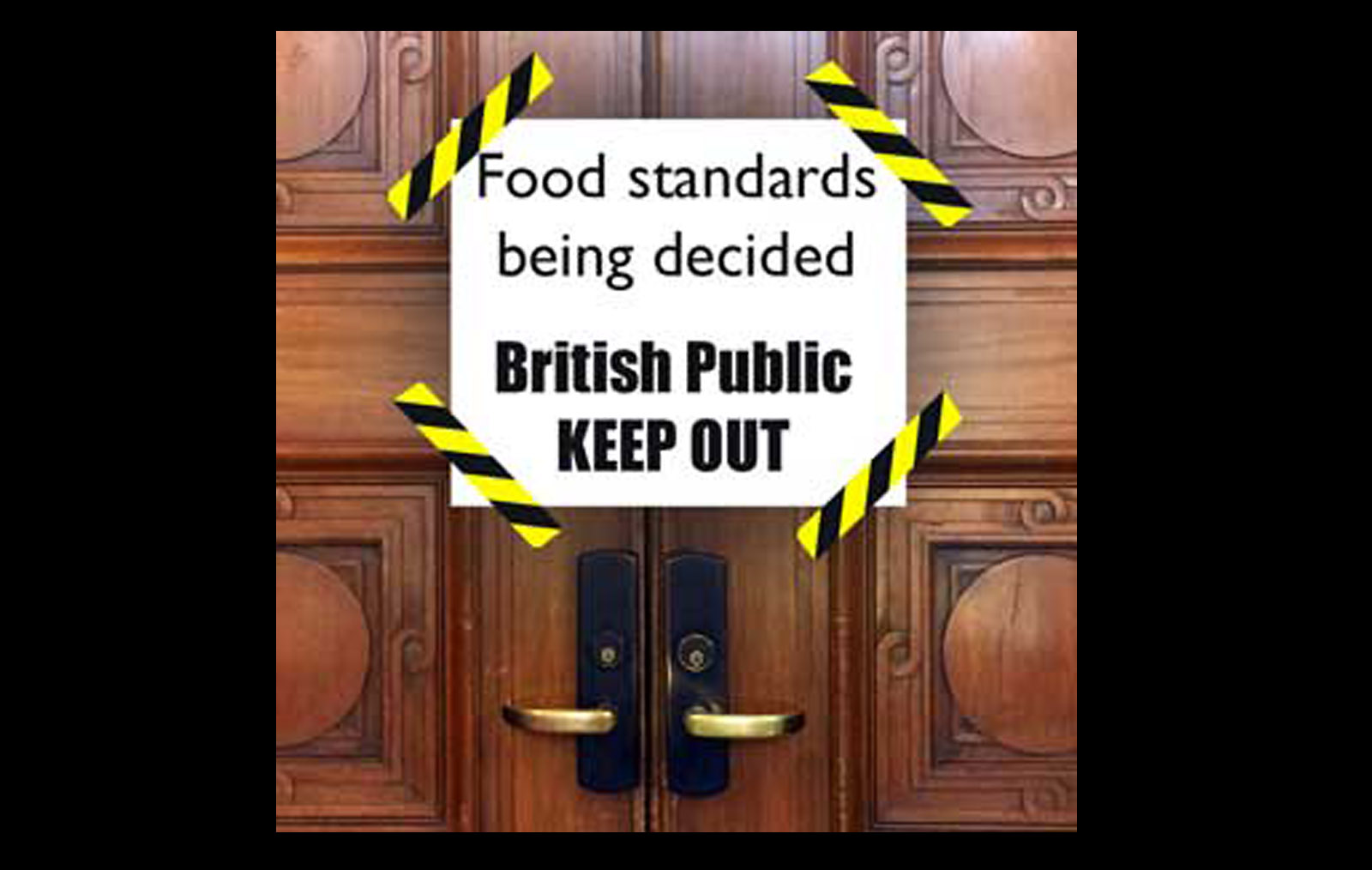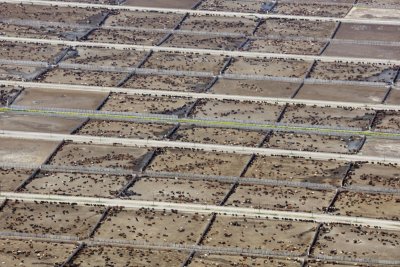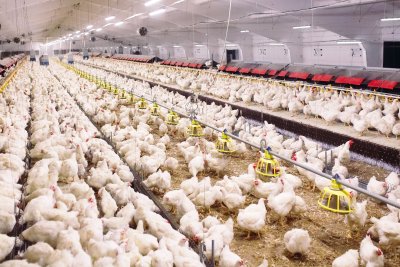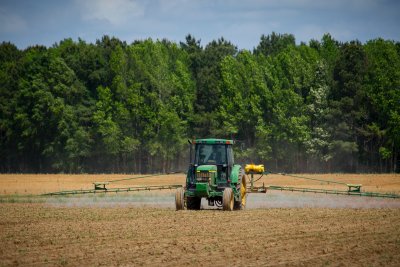 Photo credit: Sustain
Photo credit: Sustain
Embargoed 00.01, Friday 27 November
A new report published today warns that the UK government has already weakened protections around food imports and is failing to consider the impact of trade on public health, animal welfare and the environment with adequate rigour or transparency.
The Safeguarding Standards report from the Future British Standards Coalition (FBSC) has found that UK ministers have given themselves significant powers to change the rules on food imports without parliamentary votes or proper scrutiny [1]. Rules governing the use of hormones and food additives are now easier to change, while standards on the use of antibiotics in farming have already been deleted [2].
With the government resisting strong public pressure to commit in law to maintaining import standards, fears have persisted that lower standard food could in the future undermine UK farmers and find its way into schools, hospitals and care homes [3]. Countries with whom the UK is negotiating allow concerning production methods: a 2018 outbreak of super-resistant Salmonella in the United States was linked to the overuse of the antibiotic Azithromycin in cattle, while Australia uses 71 more pesticides with direct links to long-term health damage, including birth defects, cancer and hormonal disruption, than the UK [4].
The report argues that maintaining high import standards would enable the UK government to build new markets for domestic farmers, potentially drive up international standards and help countries in the Global South increase exports while improving environmental conditions and animal welfare [5].
At the start of November, the UK government sought to allay fears around food imports: it pledged to make its new advisory Trade and Agriculture Commission (TAC) a statutory body for at least three years, and committed to issuing a report to parliament on each new trade deal it negotiates.
While the FBSC welcomes an extended commission, it does not believe the current membership of the TAC – focused on farming and business – matches the government’s original pledge to “ensure the voices of the public … are heard” [6]. Similarly, the coalition notes that the secretary of state will get to choose who is consulted on the formation of the reports to parliament, and that MPs will still only be able to postpone rather than reject trade deals based on their findings [7].
In the absence of commitments to high food import standards in primary legislation, the FBSC urges ministers to widen the TAC’s expertise and remit [8]. The FBSC calls on ministers to ensure the body includes representatives on public health, environment, animal welfare and consumer protection to provide missing expertise, and to confirm how it will interact with parliament, government agencies and trade negotiators. The FBSC also urges ministers to improve scrutiny over trade deals.
Kath Dalmeny, chair of the Future British Standards Coalition, said:
“UK consumers have consistently rejected the prospect of poorly produced food that hurts people, the planet and animals. The government needs to show the public it is listening and taking advice from a wide range of experts. It should start by appointing a Trade and Agriculture Commission that reflects a proper range of expertise and ditching this behind closed doors approach to negotiating trade deals.”
George Dunn, chief executive of the Tenant Farmers Association, said:
"The unity of voice across farming, environmental, animal welfare and public health groups underlines the imperative that UK Government doesn't drop the ball in reaching trade agreements which undermine domestic food production standards. Extending the tenure of the Trade and Agriculture Commission will mean nothing if it is toothless, side-lined and ignored. Now is the time for the Government to show that it is indeed determined to deliver its General Election Manifesto commitment to protect standards in trade."
You can read the Future British Standards Coalition final report here
ENDS
ABOUT The Future British Standards Coalition (FBSC) was set up in September 2020 to consider the government’s approach to food standards in trade, following concerns that the new Trade and Agriculture Commission did not represent a full range of public interests.
Sustain and Greener UK sought to form a panel with expertise on animal welfare, biodiversity, climate change, public health, consumer protection, farming and trade law. The FBSC panellists are: trade academic Dr Emily Lydgate, Lord Randall of Uxbridge, Baroness Boycott, and representatives from the RSPCA, Faculty of Public Health, Pesticide Action Network UK, Tenant Farmers Association, Landworkers’ Alliance, WWF, PS100, and Compassion in World Farming. Its secretariat is provided by Greener UK and partners, and Sustain.
NOTES
[1] Safeguarding Standards, Future British Standards Coalition, 27 November 2020.
[2] ‘Restrictions on the use of antibiotics on British farm animals 'were watered down to help post-Brexit US trade deal'’, Mail on Sunday, 16 August 2020.
[3] According to the chef Jamie Oliver, more than 2.6 million people have signed petitions, and over 260,000 have written to their MP, urging the government to strengthen food import standards. (See: ‘Farmers call on MPs to support food and farming standards in the Ag Bill’, Sustain, 3 November 2020).
Meanwhile, catering and public health experts have expressed serious concerns about public procurement, with fears that major fast food restaurants now have a better approach to sourcing their ingredients than some parts of the public sector. Concerns also extend to restaurants: over 40% of household food expenditure in the UK goes toward catering services, such as restaurants, which are not required to label the provenance of their ingredients. (See Safeguarding Standards, p. 6).
[4] Safeguarding Standards, p. 5; and Toxic Trade, PAN UK, Sustain and Dr Emily Lydgate, June 2020, p. 16.
[5] Nigeria and the Indian state of Punjab have moved towards tighter pesticide rules to access European markets, while Namibia’s high animal welfare saw it become Africa’s largest beef exporter to the EU. (See Safeguarding Standards, pp. 4-5).
[6] ‘Trade and Agriculture Commission membership announced’, Department for International Trade, 10 July 2020; ‘Truss formally launches Trade and Agriculture Commission’, Department for International Trade, 27 July 2020.
[7] ‘In preparing the report, the Secretary of State may seek advice from any person the Secretary of State considers to be independent and to have relevant expertise.’ (See: Reports relating to free trade agreements, Agriculture Act 2020).
[8] The FBSC maintains that the easiest way to keep out lower quality products such as those treated with growth hormones and dangerous pesticides is through reference to such standards across primary legislation and with full parliamentary scrutiny over trade deals and changes to standards.
While it has been suggested that dual tariffs and the Food Standards Agency and its sister agencies offer potential avenues for maintaining food import standards, the report concludes that they cannot provide the same level of protection as legal commitments.
Even current TAC members have briefed journalists that the membership is unrepresentative. (See: ‘Trade deals must not damage food standards, experts warn’, The Times, 9 October 2020).
Sustainable Farming Campaign: Sustain encourages integration of sustainable food and farming into local, regional and national government policies.
Sustain
The Green House
244-254 Cambridge Heath Road
London E2 9DA
020 3559 6777
sustain@sustainweb.org
Sustain advocates food and agriculture policies and practices that enhance the health and welfare of people and animals, improve the working and living environment, promote equity and enrich society and culture.
© Sustain 2024
Registered charity (no. 1018643)
Data privacy & cookies






